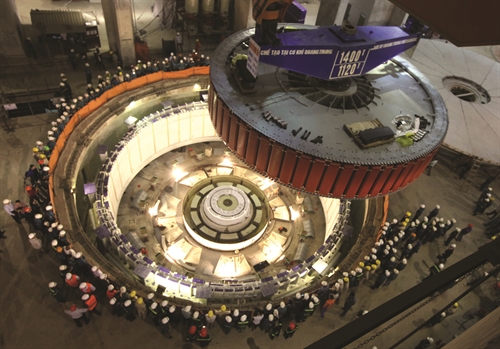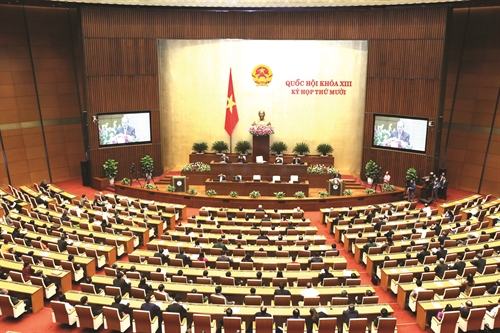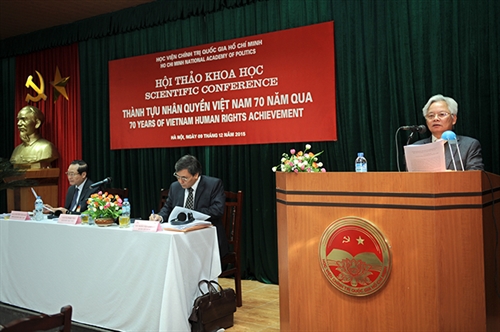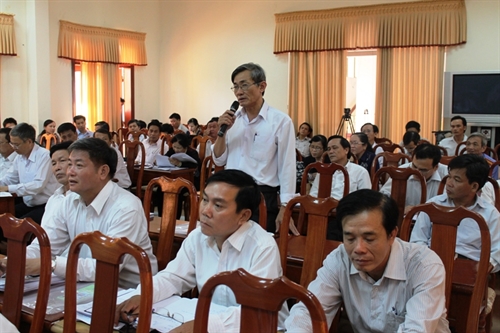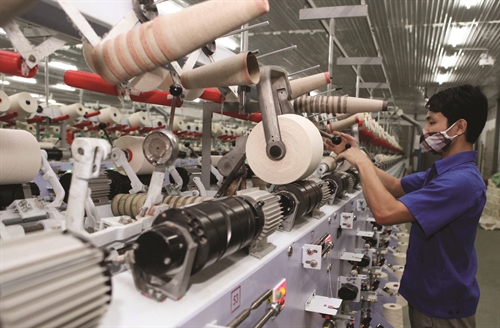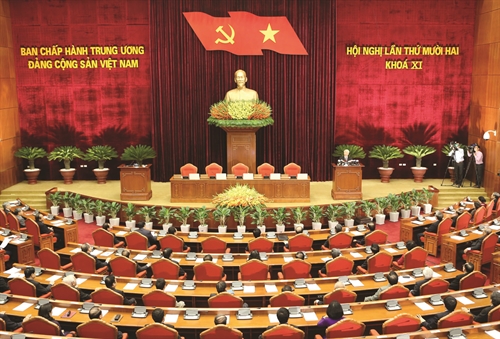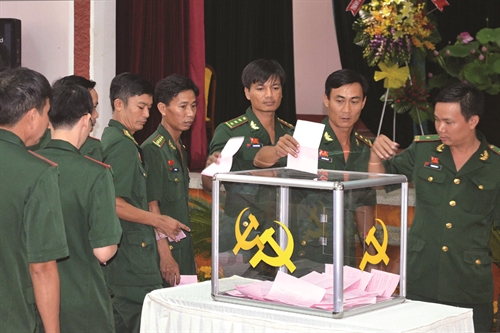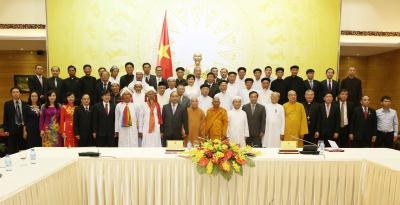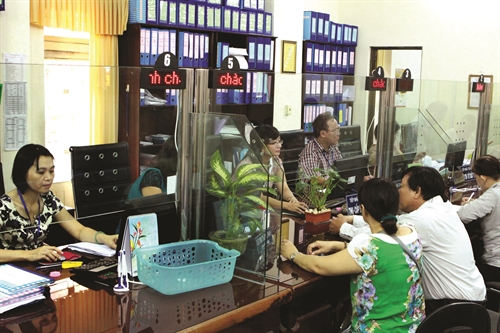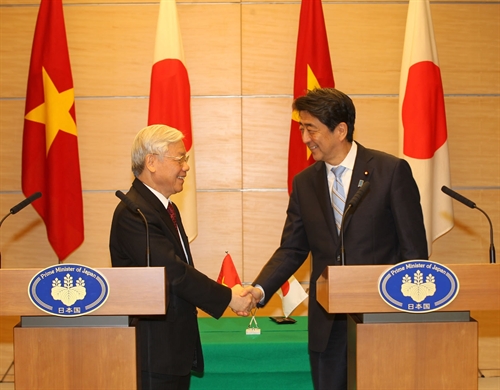On December 7, Politburo member and Party Secretariat standing member Le Hong Anh signed Directive No. 50-CT/TW on enhancement of the Party’s leadership over the detection and handling of corruption cases. Below are major contents of the Directive.
The anti-corruption work in the past years has achieved important results, contributing to the socio-economic development, firmly maintaining political stability and consolidating trust of cadres, Party members and the people in the Party, State and regime.
However, the situation of corruption is still developing in a complicated manner and the detection and handling of corruption cases still fail to meet requirements; the number of detected corruption cases remains small; some corruption cases have been handled in a prolonged and lenient manner; the recovery of corruption-related assets is unsatisfactory, leading to public discontent and doubt about the Party and State’s resolve to fight corruption.
In order to raise the effectiveness of the fight against corruption, Party Committees at all levels must step up their leadership and direction over the performance of the following tasks and solutions:
Heads of Party Committees, state agencies, mass organizations, and units must be exemplary in performing and personally direct the anti-corruption work; take the initiative in detecting signs of corruption in their organizations, agencies, units and localities. Anti-corruption result will be used as a criterion for evaluating their qualities, capacity, responsibility and performance.
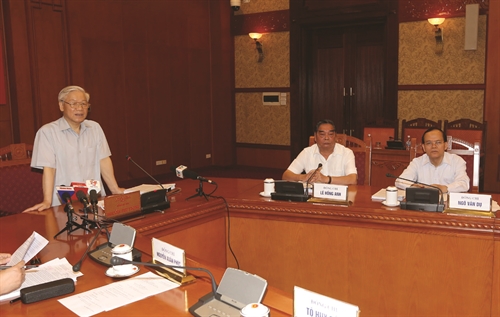 |
| Party General Secretary Nguyen Phu Trong addresses the 8th session of the Central Steering Committee for Anti-corruption __Photo: Tri Dung/VNA |
Those heads who let corrupt practices occur in their agencies, organizations and units and fail to actively detect and handle such practices, especially those who cover up corruption and obstruct the detection and handling of corruption must be promptly handled without mercy.
Regulations on detection and handling of corruption must be improved in conformity with Vietnam’s practical conditions as well as relevant treaties to which Vietnam is a contracting party.
Corrupt acts must be uniformly established in the Penal Code, Anti-Corruption Law and relevant legal documents. Inspection and audit laws must be revised to more clearly define the powers and responsibilities of each agency in the detection and handling of corruption. Detected corruption cases showing signs of crime must be transferred to investigative agencies. Responsibilities of and coordination among functional agencies, organizations and units in the detection and handling of corruption must be specified.
Regulations on judicial assessment must be completed in order to facilitate the settlement of corrupt and economic cases.
The Denunciation Law must be revised, ensuring corruption-related denunciations be promptly settled in accordance with law.
The effectiveness of the inspection, examination, audit, investigation and settlement of denunciations, processing of reports on corruption cases, and control of assets and income of officials, civil servants and public employees must be enhanced in order to detect and handle corruption cases.
The responsibility of the National Assembly and People’s Councils at all levels for overseeing the detection and handling of corruption cases must be heightened. The role and responsibility of the entire society, especially the Vietnam Fatherland Front Central Committee and its member organizations, people’s inspectorates and the mass media must be enhanced in discovering corruption cases. The Regulation on grassroots democracy must be properly implemented; Party members, civil servants, public employees and workers must be provided with favorable conditions for and encouraged to detect corruption. Corruption denouncers must be protected, commended and rewarded and at the same time any acts of repressing or taking revenge on corruption denouncers or taking advantage of corruption denunciation to undermine internal unity, slander or harm others must be strictly punished.
 |
| The first-instance hearing for the corruption case at Dong Phuong Knitwear Company and Agribank’s Branch 6 in Ho Chi Minh City __Photo: Hoang Hai/VNA |
Inspection and supervision by specialized anti-corruption agencies must be stepped up with higher effectiveness.
Detected corruption cases must be verified, investigated and handled in a stringent and lawful manner on the following principles: active and expeditious verification and investigation; prompt handling; handling of corruptors regardless of whoever they are; criminal cases must be instituted if detecting signs of crime and detected corrupters, once confirmed, must be prosecuted. Lawful special investigative and procedural measures may be taken to promptly detect and handle corruption cases. Violations in anti-corruption work must be promptly handled. Corrupt acts showing signs of crime must not be handled with just administrative or economic measures. Annually, typical corruption cases will be selected for handling to draw experience for better handling of other cases.
In the settlement of corruption cases, assets of corruptors must be clearly and accurately verified. Measures to fully recover proceeds from corruption must be promptly applied in the course of inspection, examination, audit, investigation, prosecution and judgment enforcement. Those who fail to actively recover or obstruct the recovery of corruption-related assets must face strict punishment.
The anti-corruption apparatus and personnel must be strengthened.
The organization and operation of the Central Anti-Corruption Steering Committee, the Party Central Committee’s Commission for Internal Affairs and provincial-level Party Committees’ Internal Affairs Commissions must be reviewed in order to define more clearly their powers and responsibilities for detecting and handling corruption cases.
The Central Anti-Corruption Steering Committee must cooperate with related agencies in studying and proposing the model of specialized anti-corruption agencies or units with greater powers and higher responsibilities for the task. In the immediate future, these specialized anti-corruption agencies and units must renew their operation and improve the quality of their members and be provided with better working conditions and equipment.
The Party Central Committee’s Examination Commission must study and propose to competent authorities for decision more specific regulations on tasks, powers and responsibilities of Party Examination Commissions at all levels in the fight against corruption.
Public information about the detection and handling of corruption cases must be promoted in the mass media.
Effective cooperation with foreign countries and international organizations on the settlement of crimes of corruption must be intensified. We should take the initiative in negotiating and concluding judicial assistance agreements with foreign countries, and implementing the United Nations Convention against Corruption in conformity with Vietnamese conditions and law.- (VLLF)
